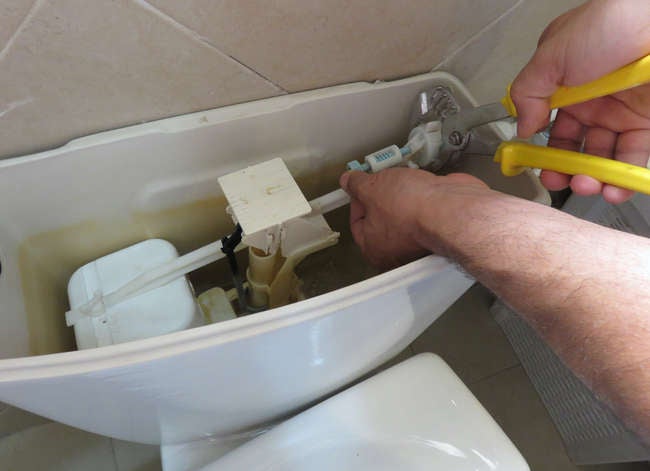

We may earn revenue from the products available on this page and participate in affiliate programs. Learn More ›
Home Advice You Can Trust
Tips, tricks & ideas for a better home and yard, delivered to your inbox daily.
Homeowner Hacks

It’s no secret that owning a house comes with a lot of responsibilities—and costs. Even when you budget for certain repairs or tuneups, there are plenty of other times when unexpected hiccups occur. That’s why it’s always useful to have a few home maintenance hacks in your back pocket. From the garden to the garage, these tips and tricks help you save money while still keeping an orderly home.
Sponge Split

Sponges soak up everything in their path, including the funds required for frequent replacement. Fortunately for the budget-conscious, half a sponge packs as much grime-fighting ability as a whole sponge. So, you can get twice the utility out of one sponge by cutting it into two pieces.
Stay Afloat
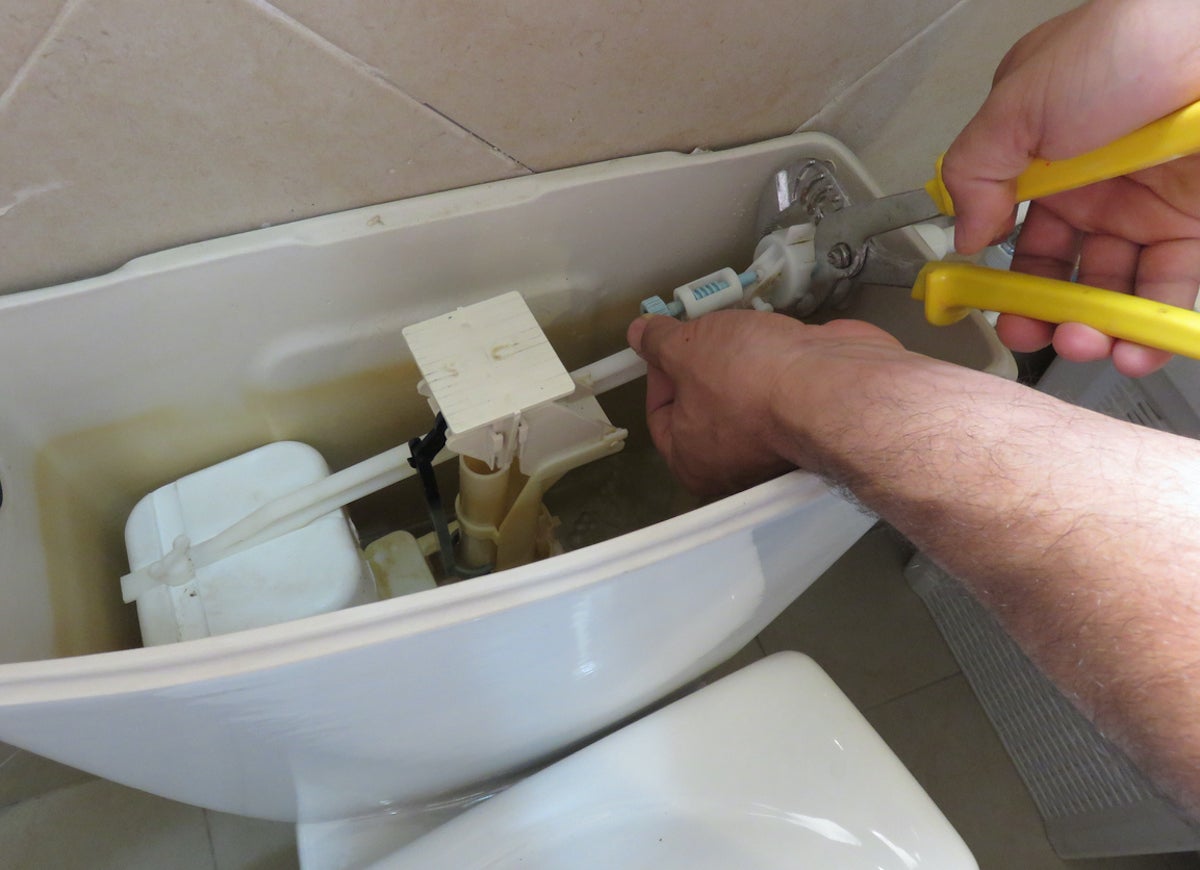
Unless you own a dual-flush toilet, you’re probably dumping way too much water down the drain with each flush, which in turn raises your water bill. Flush smarter by adding a brick or full plastic water bottle to the toilet tank. The extra bulk will raise the tank’s float arm faster, which means you’ll need less water to fill the tank.
The Razor's Edge

Youtube via The Grommet
Before you dispose of disposable razors, try sharpening them with an adaptable accessory already in your wardrobe: a leather belt. The particulate grit on the underside of a belt acts as a strop, refining the dull edges of the blade until it is as sharp as ever and ready for many more shaves.
Cleaner Coils
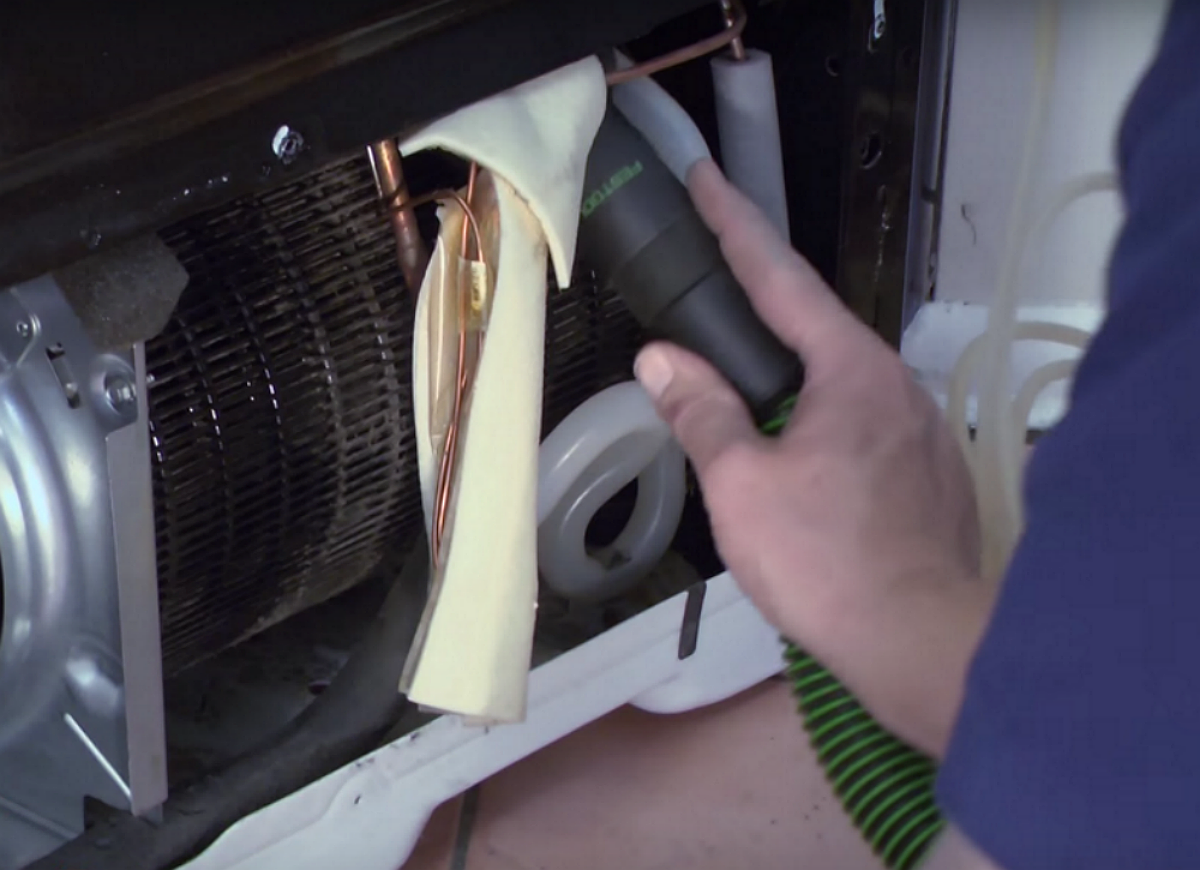
Grit and gunk that collect on your refrigerator’s condenser coils can put the hardworking appliance into overdrive—and this can lead to sky-high energy bills. Using a vacuum cleaner with a crevice-friendly attachment, banish unsightly accumulations from the coils for improved energy efficiency.
Hosed Down

Instructables via Carleyy
Just as hosiery brings polish to an outfit, it can add luster to surfaces around the house. Slip old, outworn tights or pantyhose onto your hand like a glove, and then buff dusty lamps, dingy furniture, and other accessories to achieve polished perfection—no commercial cleaners required!
H2-Whoa!
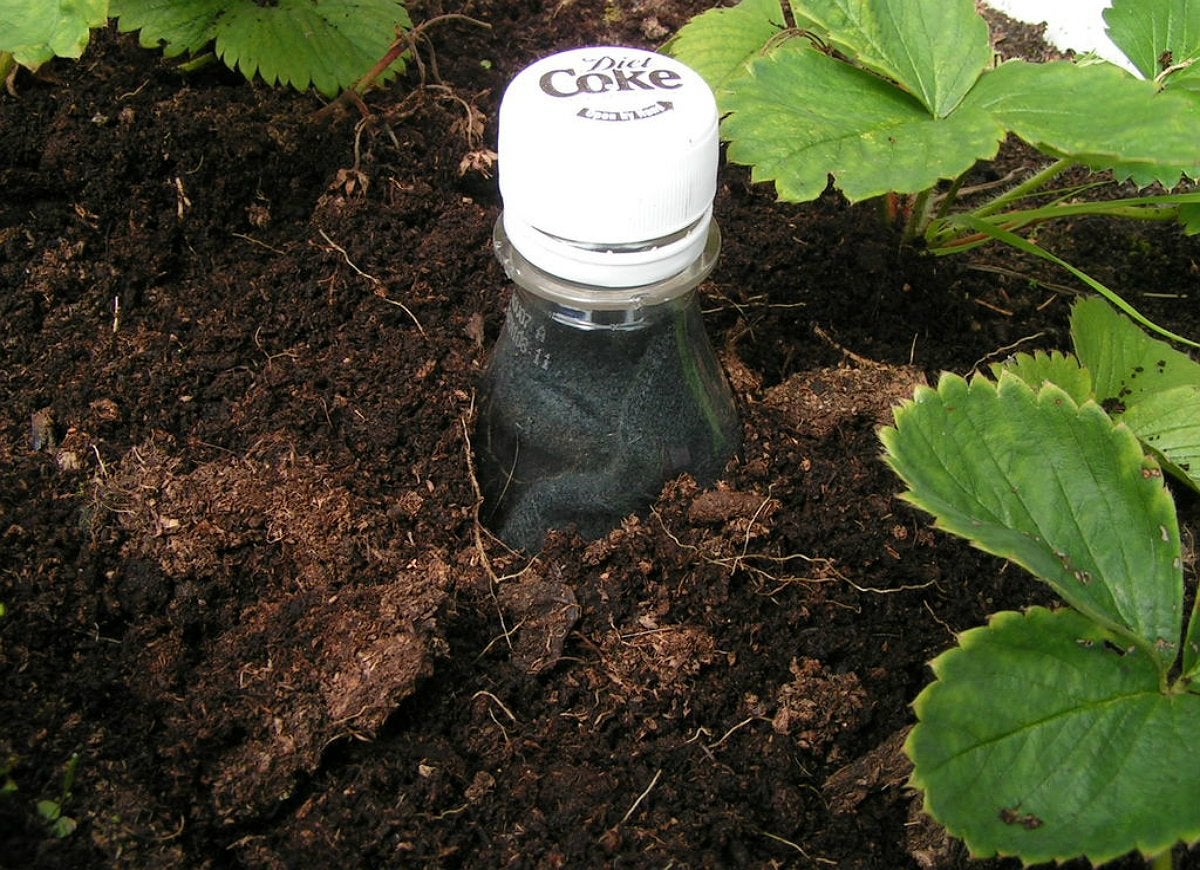
Instructables via Kiteman
When water is at a premium, save your wallet and the environment by DIYing this slow-drip watering device for your garden bed. Constructed from a perforated water bottle filled with absorbent socks or strips of denim, the device can be planted next to young seedlings to continuously hydrate growing roots.
Running on Empty
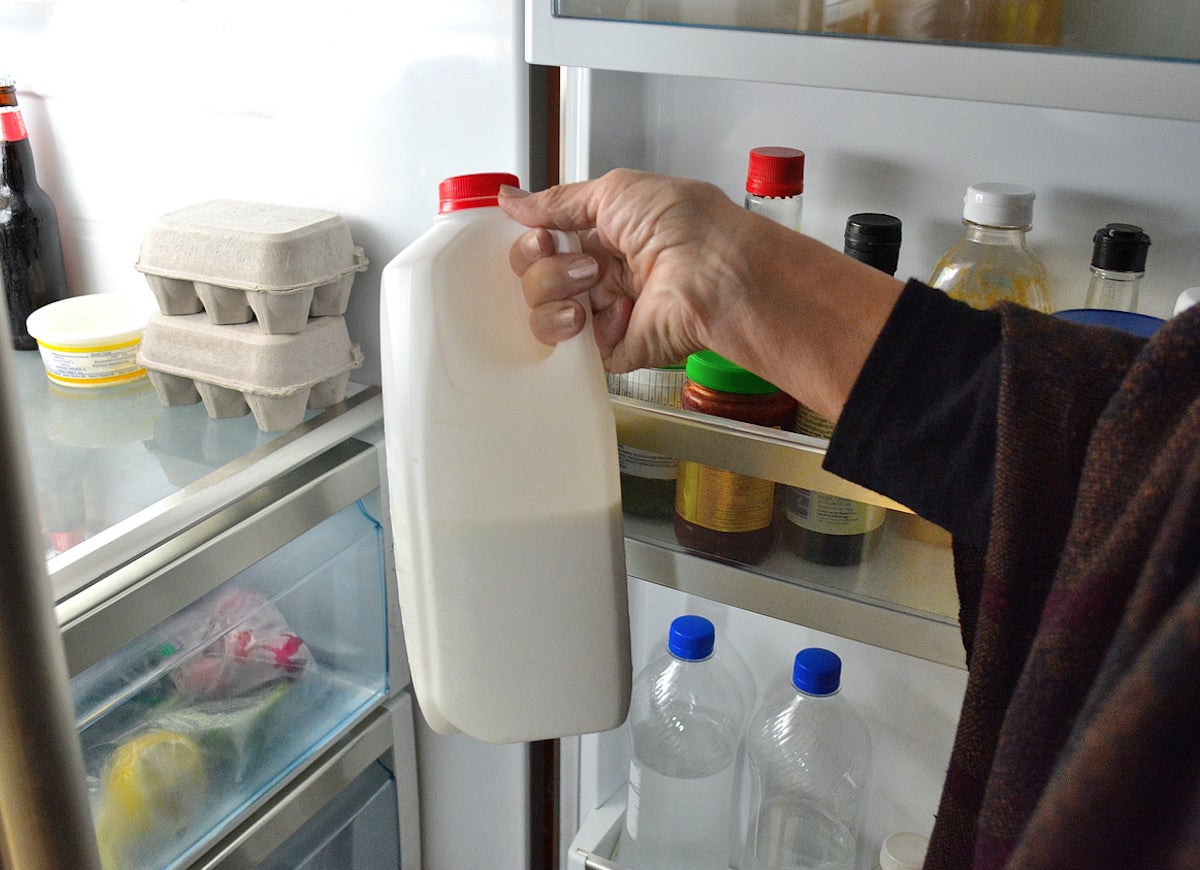
Don’t cry over spilled milk! Instead, put that empty container to good use. Empty milk containers or other large bottles placed in a half-full fridge can help increase cold air circulation and reduce your electric bill. Those frosty empty jugs keep the surrounding items cold, maintaining a low average fridge temperature—and a lower utility bill.
Mesh Well
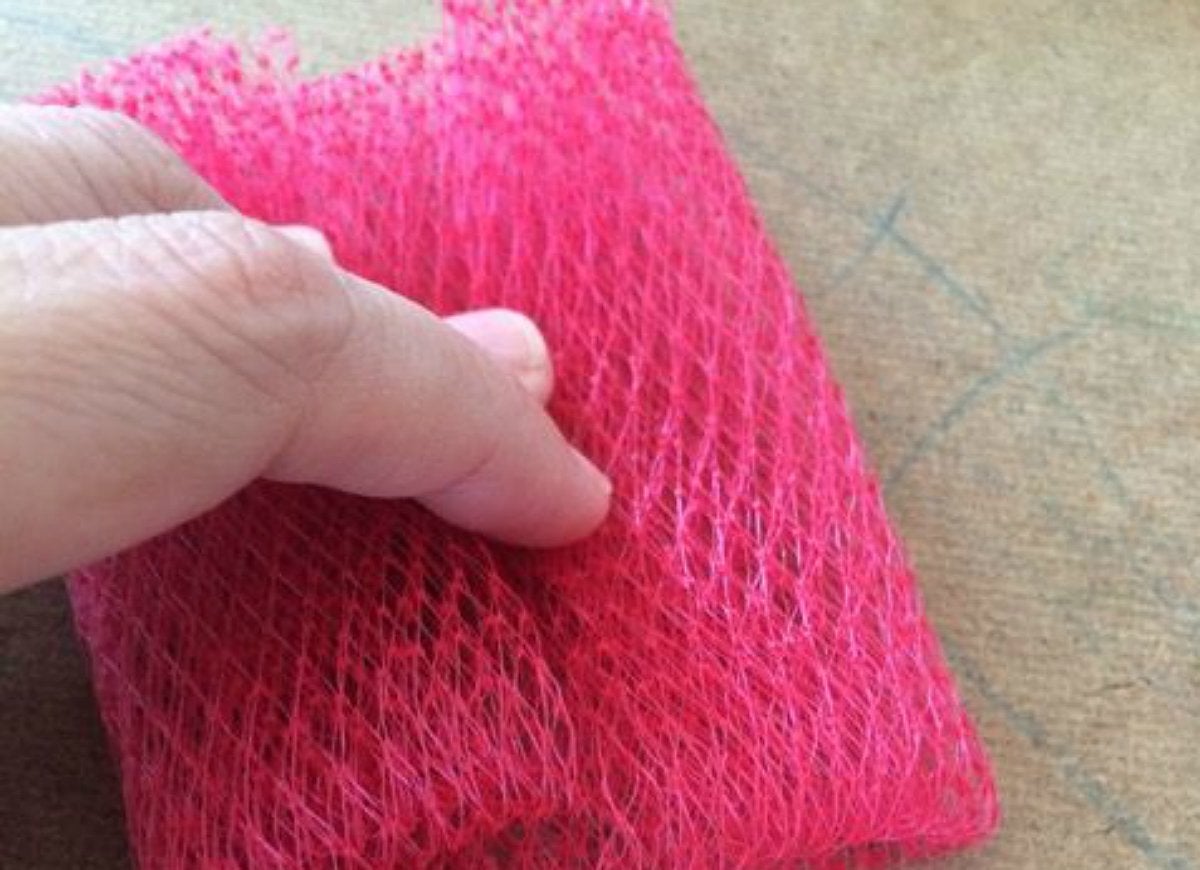
Instructables via lgooms
The flexible mesh bags that commonly house store-bought onions and potatoes can be given a second life in the kitchen as pot scrubbers. Start by cutting and folding the bag into the desired dimensions, then use a yarn needle to stitch the edges closed with rug yarn. That’s it! You’re ready to take your new scrubber to the sink and start cutting through grease!
Clean Sheet
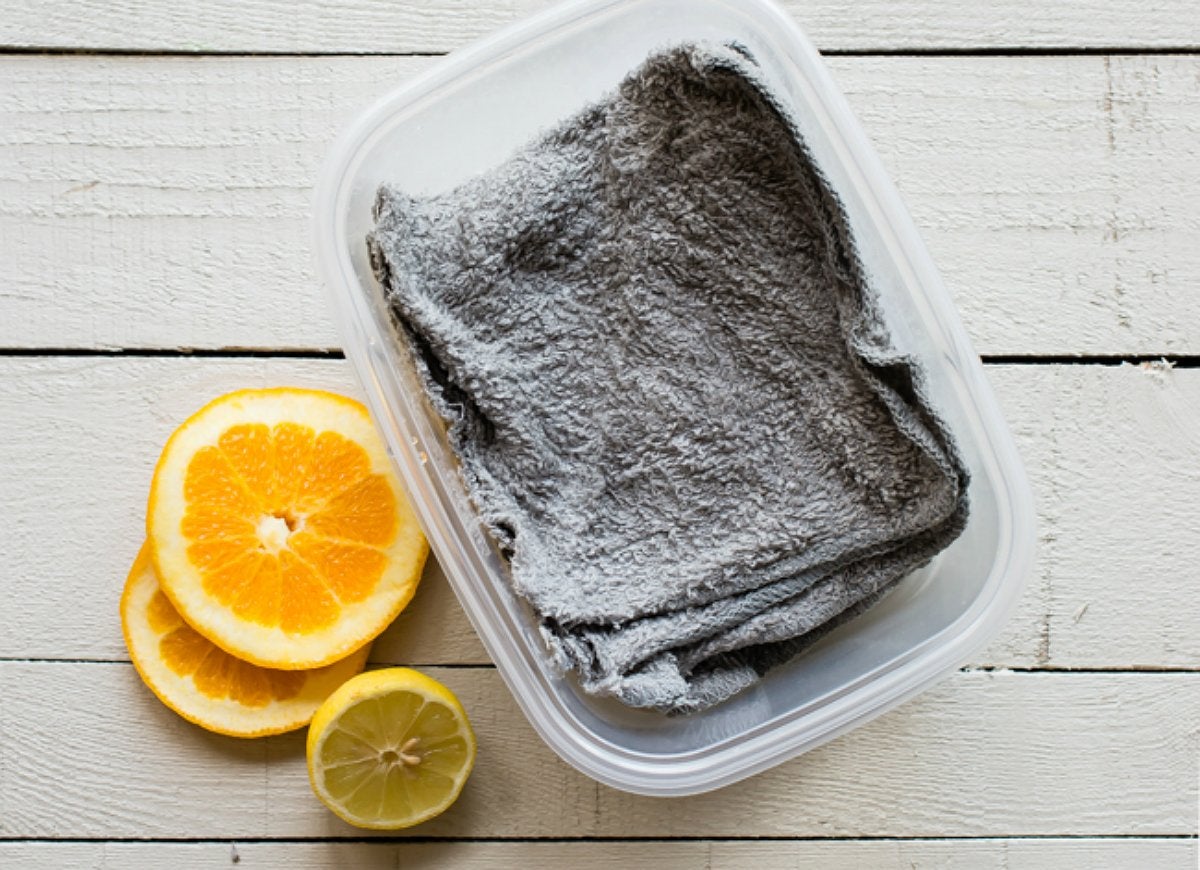
Single-use commercial dryer sheets can make laundry day more luxurious and fresher scented, but who needs them when you can make your own! To create an all-natural equivalent, dip clean, cut-up rags into a solution of vinegar and essential oils. The sheets can be stored in an airtight container until needed and then reused for countless spin cycles.
Keep Your Cool
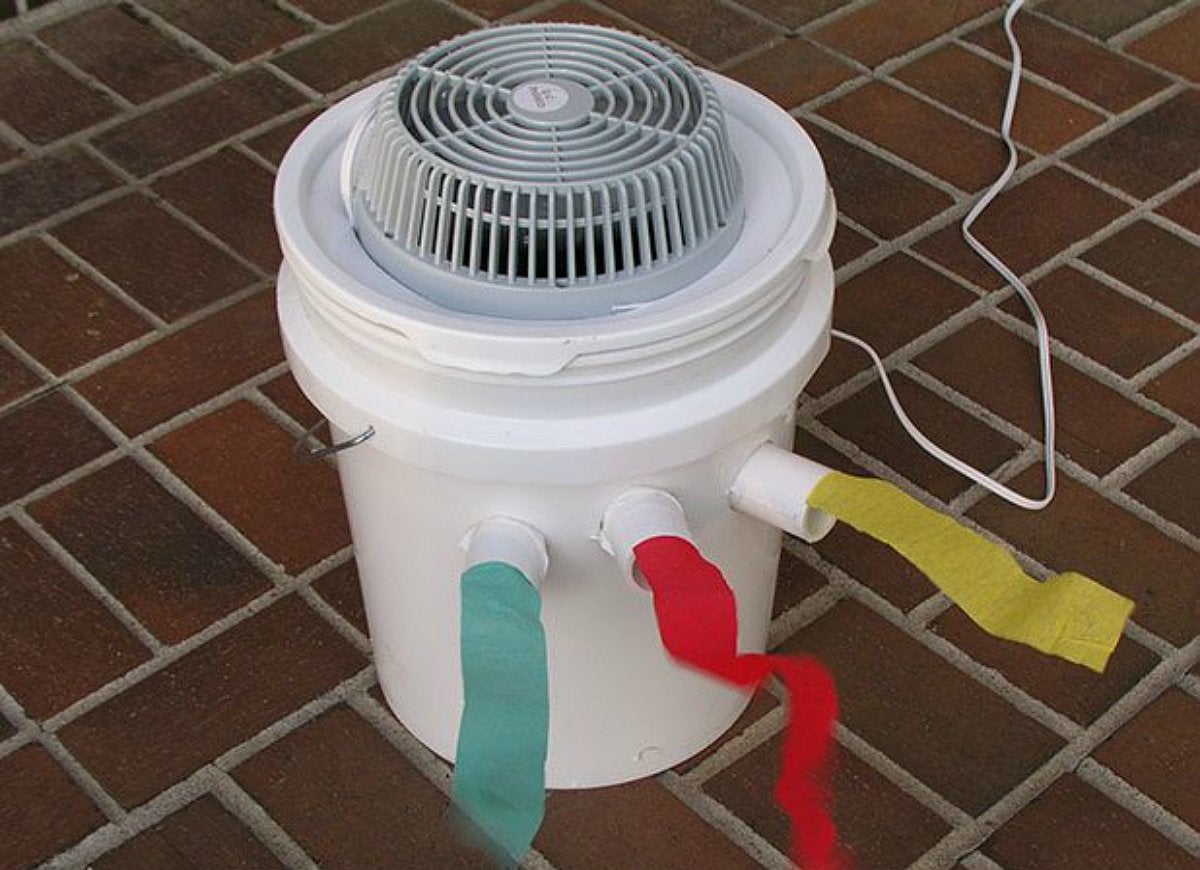
Skip the AC (and the AC bills) this summer by creating your own DIY air conditioner. Consisting of an old fan placed atop a bucket that holds a natural cooling source—frozen water—this quick hack will help you stay cool and comfortable as you soak up summer.
Recycled Regimen

If you’re down to the last few shards of that bar of soap, don’t replace it. Instead, reconstitute the soap slivers into a like-new beauty bar! Start by melting the soap scraps over the stove. Then, pour the mixture into soap bar molds, letting the bars dry before you lather up.
Stylish Stowaways
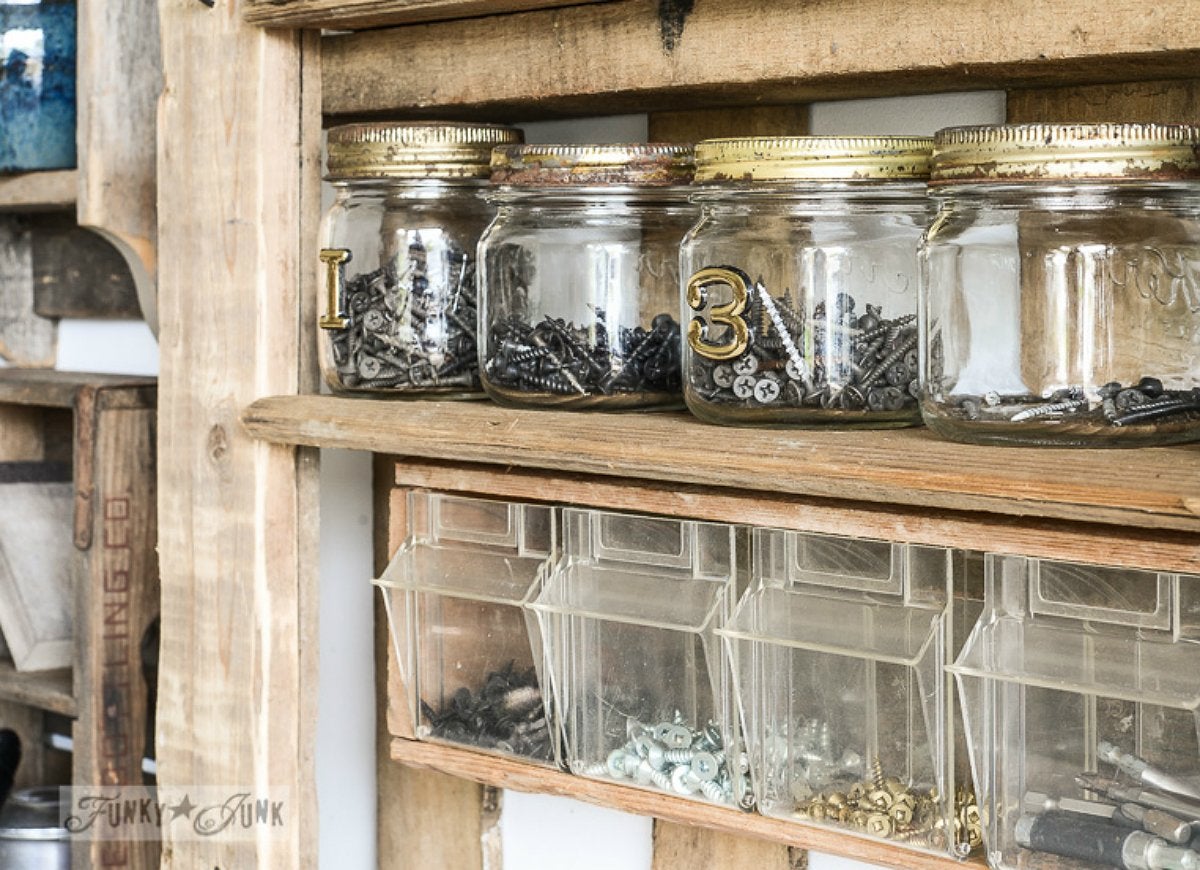
In lieu of buying expensive organizing solutions to declutter your workshop, let mason jars or other glass containers take on the job. Rinsed, dried, decorated, and filled with fasteners or tool bits, these easy-to-come-by vessels become storage-smart accents suitable for indoor or outdoor use.
Canned Response
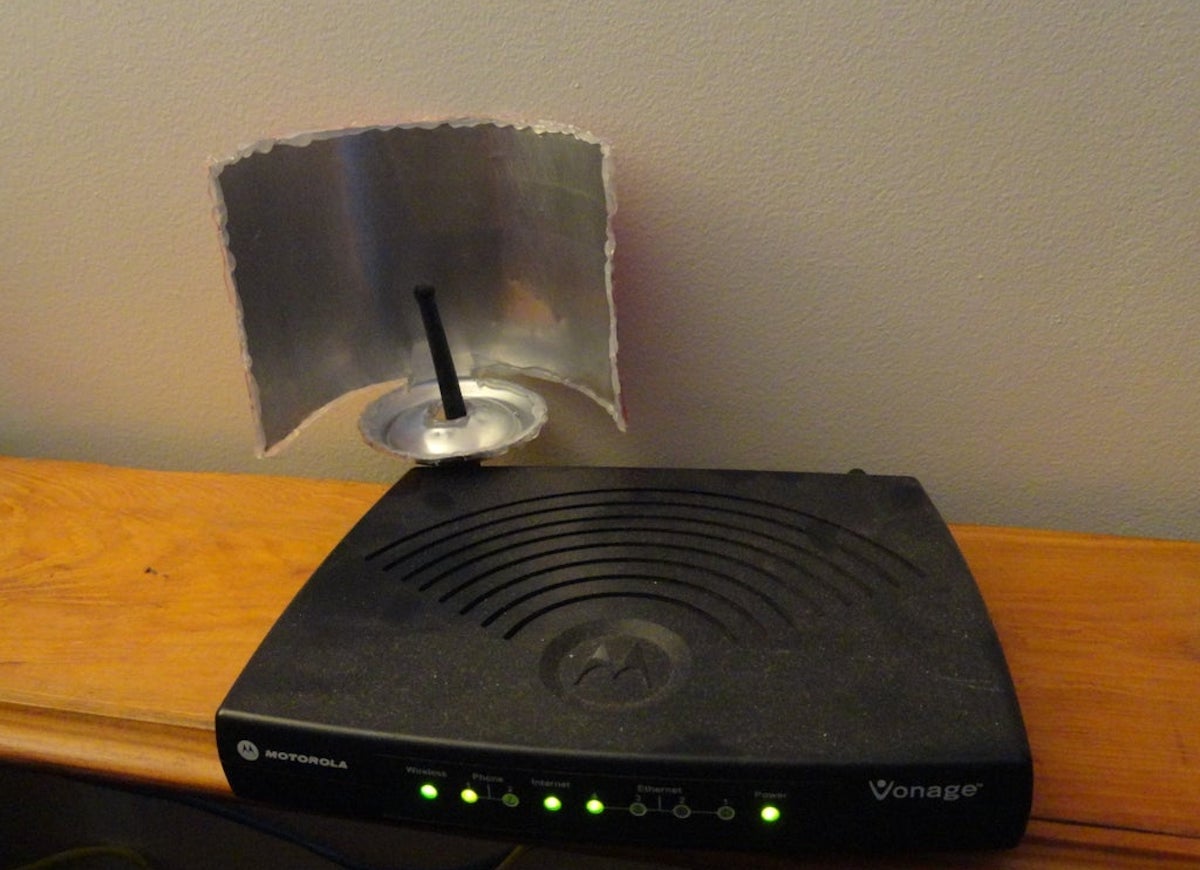
A can of soda offers more than just a sugar boost. It can also boost a weak Wi-Fi signal, and as a result, your Internet speed. Cut off the bottom of the can, then slice off the lid, leaving an inch or so connected to the can. Cut and unfurl the can, slip the mouth of the lid over your router’s antenna, and again enjoy buffer-free streaming sessions—all without having to buy an expensive name-brand signal booster.
Looking Sharp
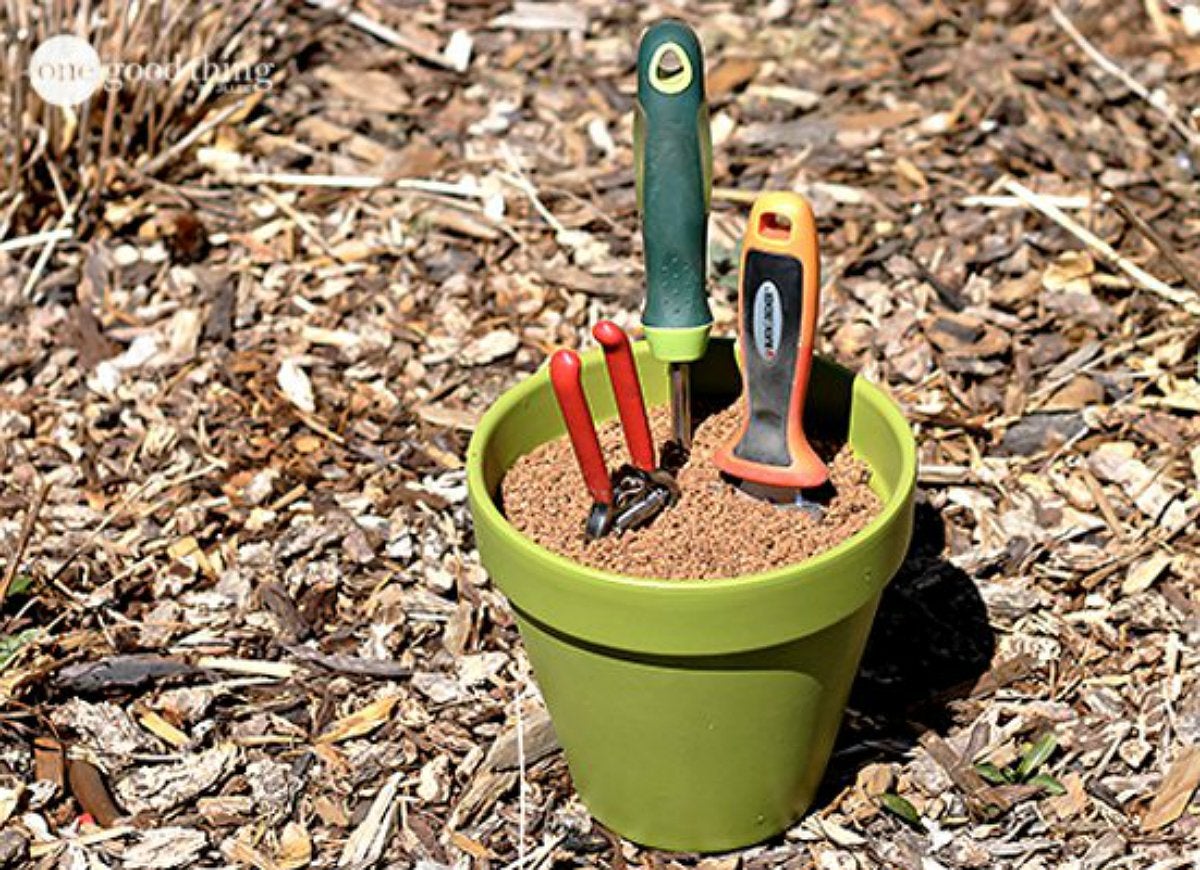
If your tools aren’t the sharpest in the shed, skip the trip to the knife sharpener and consider storing them in this specially outfitted repurposed planter instead. When painted, sealed, and tightly packed with sand and mineral oil, a commonplace terra-cotta pot can help keep your gardening gear clean and the blades sharp, all at the same time.
Right as Rain
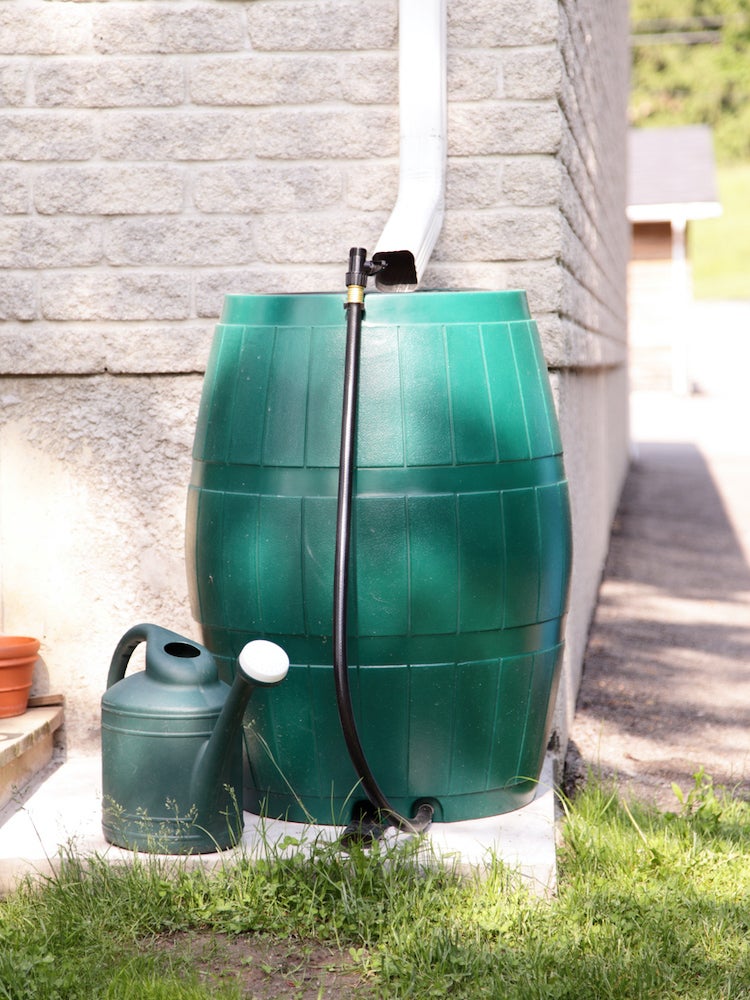
Why consume extra water to hydrate your homegrown plants when you can capture and reuse your roof and gutter runoff with a rain barrel? Installed below the eaves for optimal water collection, a bargain barrel can reduce your next water bill and help you pep up your plants.
Weed Out Weeds

Lush foliage is a pleasant surprise anywhere but near your HVAC unit, where it can cause the system to run less efficiently. Maintain proper airflow and reduce electrical consumption by plucking weeds and pruning bushes in the immediate vicinity of the unit.
The Final Curtain

When your shower curtain liner has become mired in mold and mildew, replacing it is sometimes easier than cleaning it. But if you keep an eye out for early signs of these unsightly intruders, you can keep the curtain looking good longer. When you spot the first bit of buildup, trim the bottom of the curtain with scissors to keep grime from encroaching any further.
High-End Fashion

Few can resist the warmth and fragrance of garments fresh out of the dryer, but that experience becomes somewhat less appealing when you think about all the energy it takes to machine dry. A clothesline or drying rack works just as well, and using one will not only save you money on your electric bill, but it can also lengthen the life of your threads.
Fair-Weather Fan

Before you turn up the dial on the air conditioner—and pay the price later—consider installing a ceiling fan. A fan not only allows for greater comfort and energy savings in the hot summer months, but if you go the extra mile of switching it to run clockwise when the weather gets cold, the fan can help warm up the room come winter.
Home Free
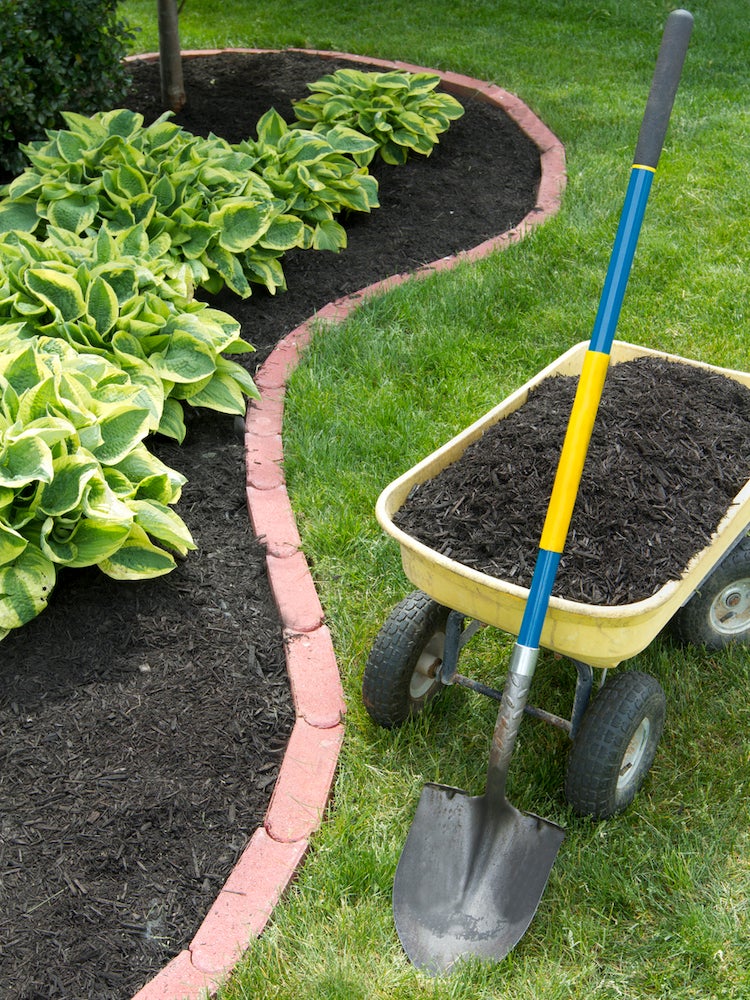
For a freshly manicured lawn on the cheap, don’t call your local landscaper—call your local parks department. You may be able to obtain mulch and compost from them at no cost, allowing you to beautify your front yard for the bargain price of—nothing.
Paste Pal

Good for more than scribbling the day’s to-do list, a short pencil can also help you draw out the last drop of toothpaste from the tube. Starting at the end, wrap the mostly empty tube around the pencil, then roll the pencil up until you extract the tube’s contents—and extend your budget!

Meet the 2025 Tools of the Year
After months of scouring the market and putting products through their paces, we’ve named the best of the best in new tools. There’s something for everyone, from veteran pros to average Joes.
